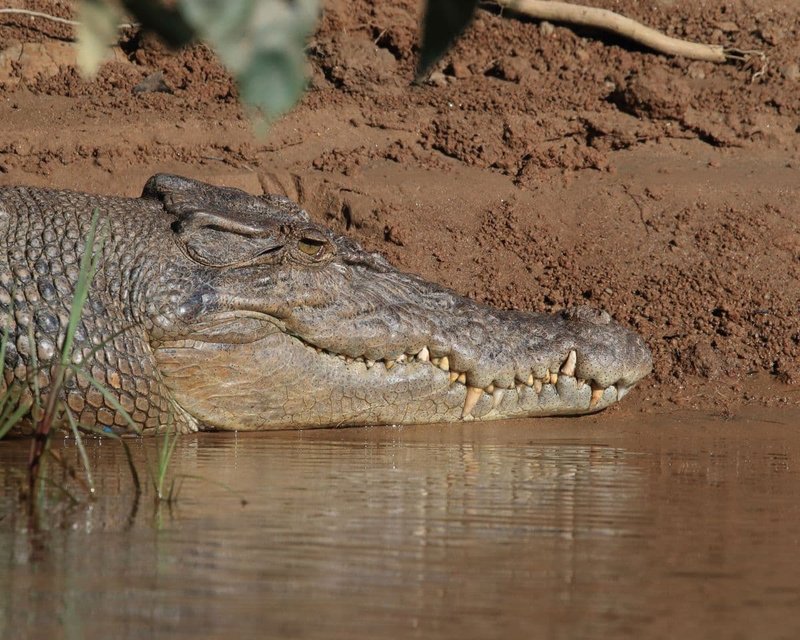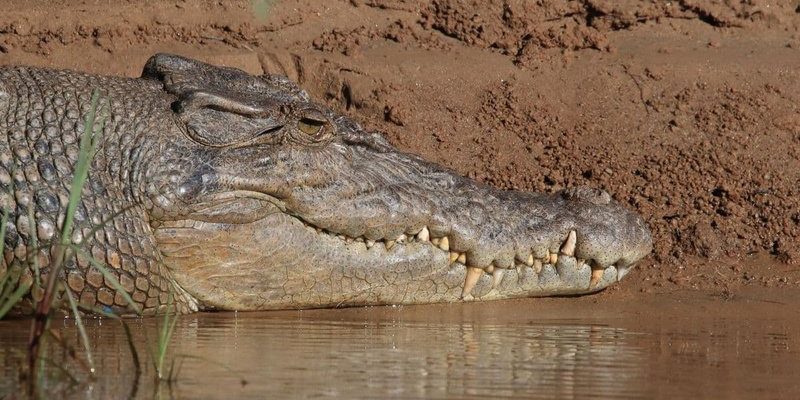
These crocodiles are more than just fierce predators. They help regulate populations of prey species, control the health of aquatic environments, and even shape the landscapes they inhabit. As we explore the saltwater crocodile’s role in its natural habitat, think of it as a masterful conductor, guiding the symphony of life in coastal and freshwater ecosystems.
Habitat and Distribution
Saltwater crocodiles can be found in a variety of environments, ranging from estuaries and mangroves to rivers and coastal areas. They prefer warm, tropical climates and can be spotted throughout regions like Southeast Asia, northern Australia, and even the eastern coast of Africa. You might be wondering why they thrive in such diverse environments. The secret lies in their adaptability.
These crocodiles are known for their ability to tolerate both salt and freshwater, thanks to special glands in their tongues that filter out excess salt. This means they can venture far from the coast into rivers and lakes, searching for food or basking in the sun. By occupying such a wide range of habitats, saltwater crocodiles play a critical role in these ecosystems, acting as both predators and scavengers.
Predator and Prey Dynamics
As apex predators, saltwater crocodiles greatly influence the populations of various animal species. They primarily feed on fish, birds, and mammals, striking swiftly and efficiently from the water. Their powerful jaws and stealthy hunting techniques make them unparalleled hunters in their realm. This status as top predators helps control the population of herbivores and other prey species, maintaining a healthy balance within the ecosystem.
But here’s the thing—it’s not just about hunting. Saltwater crocodiles also act as scavengers. When they consume their prey, they help clean up the environment by breaking down carcasses that would otherwise rot and pollute the waters. This scavenging behavior supports the overall health of the ecosystem, ensuring that nutrients are recycled back into the environment.
The Importance of Nesting Sites
Saltwater crocodiles are known for their unique nesting habits. Females typically build nests on riverbanks or in sandy areas near mangroves. They lay 40 to 60 eggs, carefully choosing locations that offer protection from flooding and predation. This nesting strategy is crucial for a couple of reasons.
Firstly, the choice of nesting site affects the survival of hatchlings. Properly protected nests result in a higher survival rate for the young crocodiles. Secondly, these nesting sites can impact the surrounding vegetation and animal life. The presence of nests encourages the growth of certain plants, creating habitat for other species and enriching biodiversity.
Interestingly, the temperature of the nest also determines the sex of the hatchlings. Warmer nests produce males, while cooler ones yield females. This fascinating twist in reproductive strategy highlights the interconnectedness of the crocodile with its environment.
Interactions with Other Species
The saltwater crocodile doesn’t exist in a vacuum; it interacts with a variety of species, from fish and birds to other reptiles and mammals. These relationships can be complex, often beneficial to both parties. For instance, birds like the Egyptian plover are known to perch on crocodiles, eating parasites off their skin. This symbiotic relationship is a great example of how different species can work together for mutual benefit.
On the flip side, these interactions can sometimes be competitive. Other predators, such as large fish or even other crocodiles, might compete for the same food sources. By establishing territories and dominant hierarchies, saltwater crocodiles help maintain a balance among predatory species, ensuring that no single species dominates the food web.
The Role in Ecosystem Engineering
Saltwater crocodiles are also skilled ecosystem engineers. Their presence can significantly alter the physical habitat. When they bask on riverbanks, they create depressions that may later fill with water, providing new habitats for various organisms. Additionally, their movements through the water help stir up sediments, which can benefit aquatic plants by making nutrients more available.
This “engineering” aspect plays a vital role in shaping the environment. Without saltwater crocodiles, many ecosystems would look entirely different, potentially leading to declines in biodiversity and ecosystem services.
Conservation Considerations
Sadly, saltwater crocodiles face threats from habitat loss, hunting, and environmental changes. As coastal areas develop or become polluted, their natural habitats shrink, putting pressure on their populations. Conservation efforts focus on protecting their habitats and educating local communities about their ecological importance.
Support for these efforts is crucial, especially since healthy crocodile populations can indicate the overall health of the ecosystem. You might be thinking about how you can help. Supporting local conservation organizations or participating in wildlife education programs can make a difference.
Final Thoughts: Why Saltwater Crocodiles Matter
In summary, saltwater crocodiles are far more than just fierce predators; they play a fundamental role in their natural habitats. From regulating prey populations to creating environments for other species, these creatures are integral to the health of coastal and freshwater ecosystems.
By understanding their role, we can better appreciate the delicate balance of nature and the intricate connections between species. So next time you hear about saltwater crocodiles, remember that they’re not just lurking in the shadows—they’re key players in the grand play of life.

